Interesting Patents | Tuesday, April 25, 2023
Revolutionary Space Foundry: An Advanced Solution for Melting and Reshaping Metal Space Debris in Microgravity Environments

The United States Patent and Trademark Office (USPTO) grants hundreds of new patents every week, showcasing developments in technology and innovation. In our Interesting Patents series, we highlight exciting US patent applications and patents recently issued by the USPTO. The patent system enables the protection of innovative ideas, and newly published patent applications provide a glimpse into the future of technology and innovation.
In this edition of #InterestingPatents, we look at CisLunar Industries USA’s patent developed with support from NASA for a revolutionary space foundry.
The increasing amount of space debris has raised concerns about the risks of catastrophic collisions with spacecraft, satellites, and the International Space Station. In response to this pressing issue, a new patent has been developed for a revolutionary space foundry, an apparatus designed to melt and reshape metal debris in microgravity or zero-gravity environments. This innovative technology offers precise control over electromagnetic fields, allowing the efficient processing and transformation of metal debris for various purposes, including recycling, re-purposing, and relocation. Developed with support from NASA, this game-changing space foundry aims to contribute to a sustainable and responsible approach to space exploration and development by addressing the ever-growing problem of space debris.
Looking for more information on patents? Want to run a free AI-Powered Prior Art Patent Search? We also offer useful Intellectual Property News & Resources with guides, videos, and insight on patents and inventorship. Think you might need a legal professional? Check out our Tips on Choosing a Patent Lawyer and contact us if you’d like a free consultation.
Space Foundry
ASSIGNEE: CisLunar Industries USA, Inc
US PAT. NO. 11634241 B1
Invention Overview:
A new patent describes a foundry designed to melt and reshape metal debris in microgravity or zero-gravity environments, like a space foundry. The apparatus can be employed for various purposes, including re-purposing, relocating, recycling, or assisting in burning up the debris in Earth’s atmosphere. The space foundry aims to offer potential solutions for mitigating the risks of catastrophic collisions posed by the thousands of pieces of metal space debris orbiting Earth and other celestial bodies in the solar system. The space foundry apparatus utilizes various components designed to work seamlessly together to process metal space debris effectively. The invention was made with government support awarded by the National Aeronautics and Space Administration (NASA).
The rapid growth in satellite launches and space missions has led to a significant increase in space debris. Space debris can pose a considerable risk to operational spacecraft, satellites, and the International Space Station (ISS). These pieces of debris, often remnants of defunct satellites or spent rocket stages, travel at extremely high speeds, making collisions potentially disastrous. As the number of objects in space continues to grow, the risk of collisions increases, creating a pressing need for innovative solutions to address this issue. The space foundry operates in environments of gravity less than Earth. Its primary function is to melt and reshape solid metal (harvested from space debris) from a first shape into a solid second shape. This transformation may include different cross-sections or lengths. It can be incidental to other purposes like recycling, metal refinement, or alloy generation.
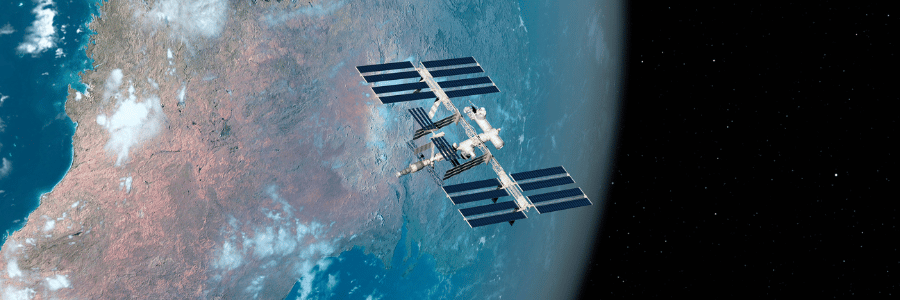
The space foundry can be mobile and brought to the space debris or vice versa. It can be hosted on a spacecraft, a space station, or placed on a celestial body’s surface like the moon, potentially even in a building thereon. This mobility and flexibility make the apparatus highly adaptable to space environments and missions. Depending on various factors, processing a portion of metal feedstock can range from 2 minutes to 2 hours. This time frame demonstrates the efficiency and effectiveness of the apparatus in dealing with space debris. The space foundry comprises several essential components, including feedstock input componentry, a furnace and furnace pre-stage, electromagnetic field generators, and casting componentry. These components work in tandem to process the metal debris efficiently.
One of the most remarkable features of innovative space foundry technology is its high degree of control over electromagnetic fields. This is achieved by individually adjusting one or more electrical parameters of the electromagnetic field generators. This advanced control enables the apparatus to steer, melt, and/or move the metal, whether in a melted state or otherwise. This level of precision in controlling the electromagnetic fields is crucial for successful operation in microgravity environments.
The forge is configured to accept conductive metal feedstock with the first shape. The feedstock input componentry plays a crucial role in receiving and managing the metal debris, and preparing it for further processing. The furnace and furnace pre-stage are established upflow of the furnace. These components heat and melt the metal feedstock in preparation for reshaping. The space foundry features a plurality of electromagnetic field generators, each designed to generate an electromagnetic field. These generators are used to steer, melt, and/or move the metal, ensuring efficient processing and precise control in microgravity environments.
The casting componentry is vital for transforming the metal debris into a more usable form or preparing it for other purposes like recycling, metal refinement, or alloy generation. The casting components are configured to reshape the molten metal into the second shape. The forge uses a simple protocol to generate a left-to-right motive force by controlling the coils individually. This control mechanism ensures high precision in moving and processing the metal feedstock. The forge may also utilize a rotary disc-based electromagnetic mechanical hybrid metal movement for additional control and precision. The apparatus is designed to process various shapes and sizes of conductive metal feedstock. This flexibility ensures that the space foundry can efficiently manage and process a wide range of metal space debris. The forge may also feature a rotating die with embedded coils that can reshape the melt into a circular second shape without contact.
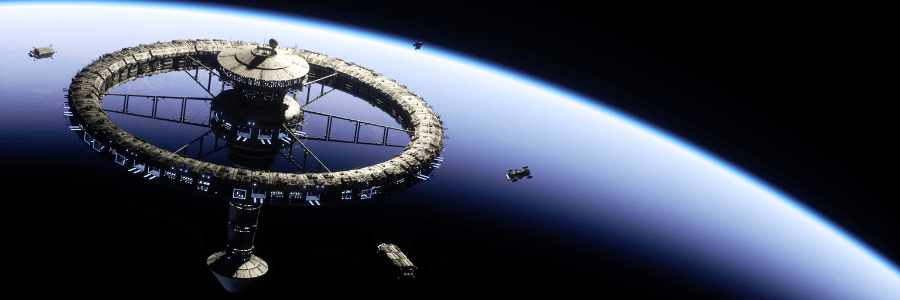
The innovative space foundry has several potential applications and benefits, making it a significant advancement in the field of space debris management. Efficiently processing metal space debris can help mitigate the risks of catastrophic collisions with other space vehicles. The space foundry can recycle and re-purpose the processed metal debris, providing valuable resources for use in space missions, construction, or even as propellant fuel. By assisting in burning up space debris in Earth’s atmosphere or reducing the need for launching new materials from Earth, the apparatus can contribute to a more sustainable space industry with reduced environmental impact. Recycling and re-purposing metal space debris can lead to cost savings for space missions and satellite operators and create new economic opportunities for space resource utilization.
The space foundry described in this patent offers a promising solution to the growing issue of space debris. With its advanced technology, precise control over electromagnetic fields, and potential applications for recycling and re-purposing, this apparatus could be a game-changer for the space industry. As humanity continues to explore and exploit the final frontier, technologies like the space foundry will be essential for ensuring a sustainable and responsible approach to space exploration and development.
Source: USPTO
PATENT ABSTRACT & ART:
Certain embodiments of the inventive technology may be described as apparatus for melting and reshaping metal from a first shape into a second shape in a microgravity or zero gravity environment, such as a space foundry, where such apparatus includes feedstock input componentry (5) configured to accept conductive metal feedstock (7) having the first shape, a furnace and a furnace pre-stage (22) established upflow of the furnace, a plurality of electromagnetic field generators (10), each of which is configured to generate an electromagnetic field, to, e.g., steer, melt and/or move the metal, whether melt or otherwise, and casting componentry (15) configured to reshape molten metal to the second shape. Certain embodiments may achieve a high degree of control over electromagnetic fields by offering individual adjustment of one or more electrical parameters of the electromagnetic field generators (10).
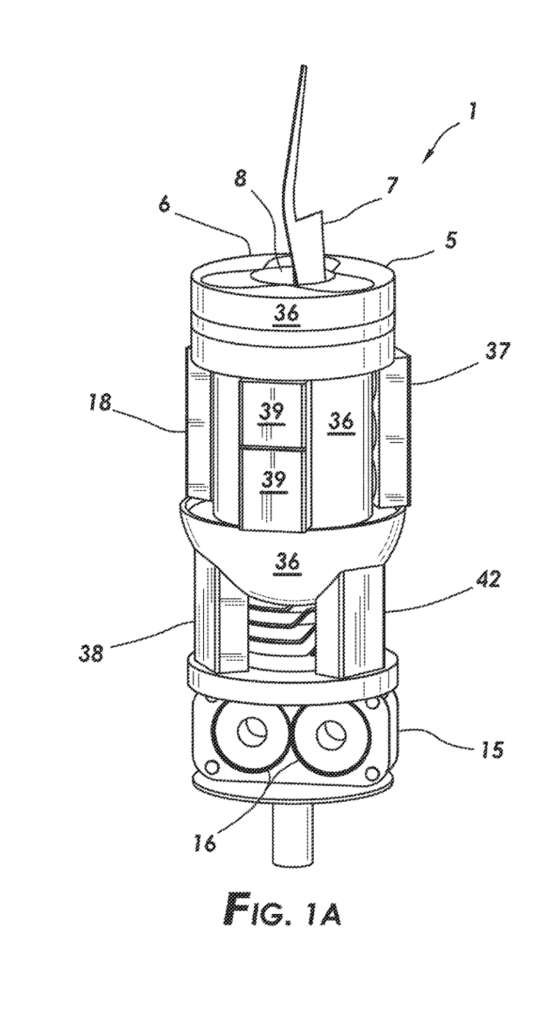
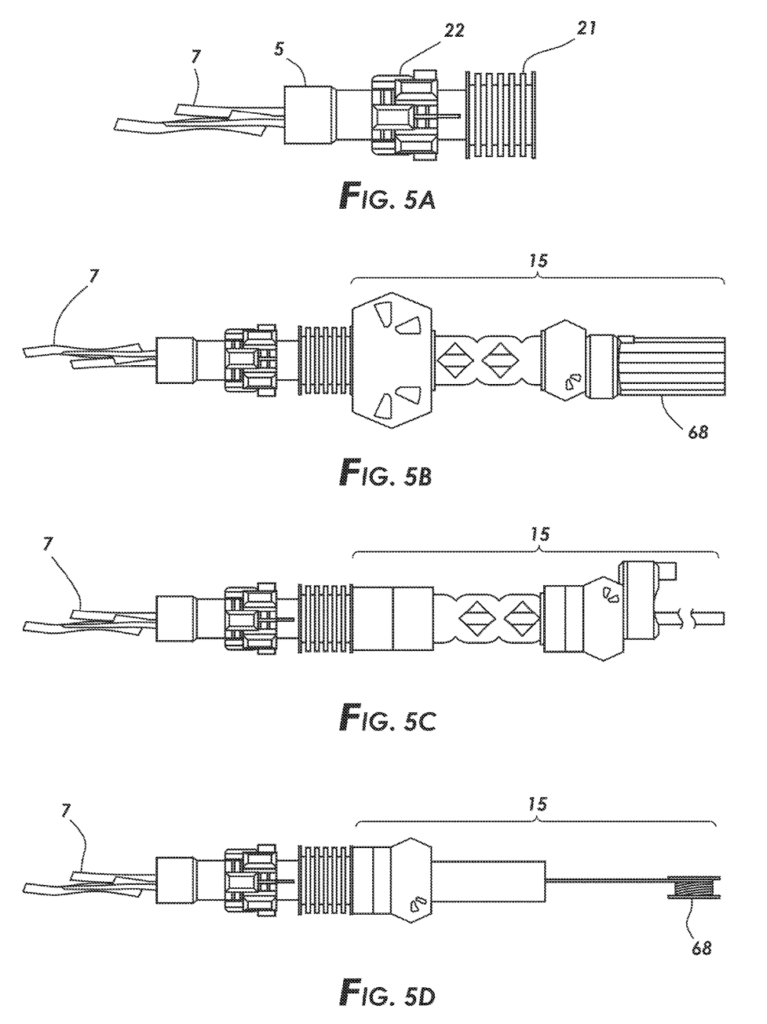
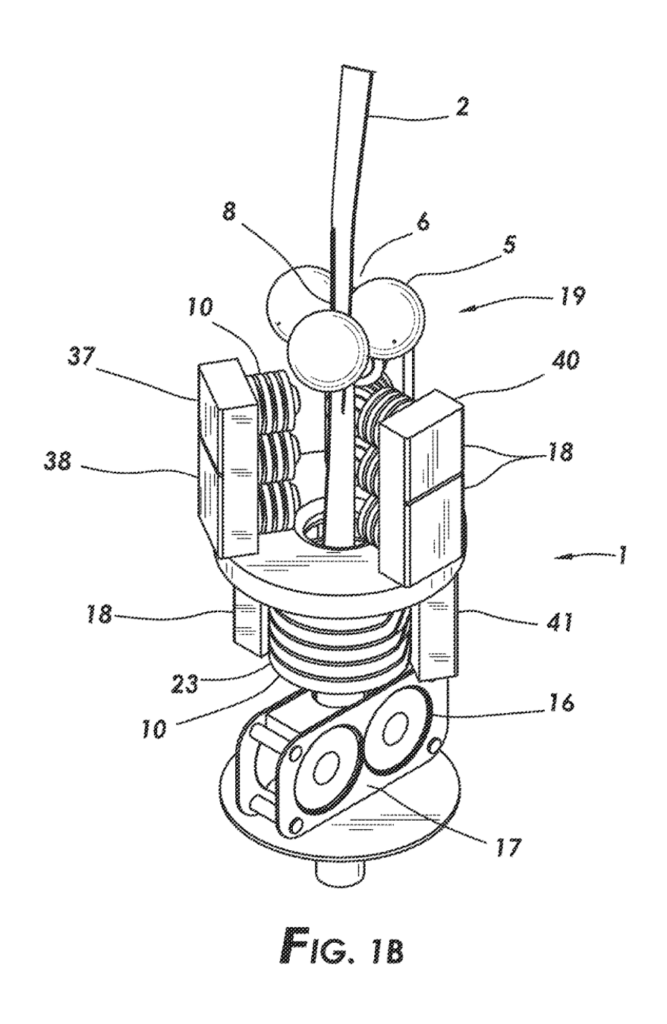
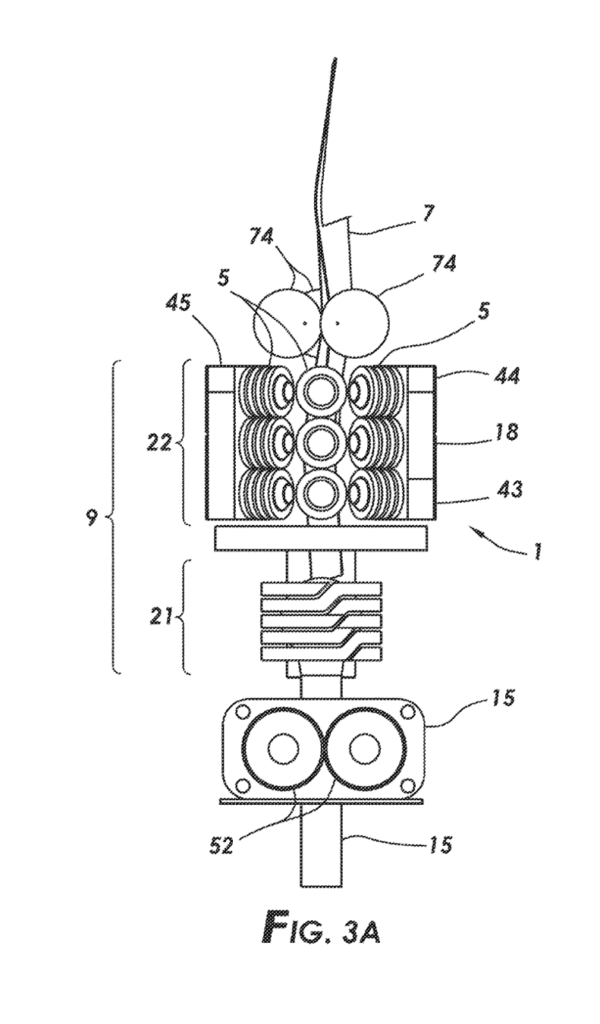
INTERESTING PATENTS BY FOUNDERS LEGAL
Founders Legal® (Bekiares Eliezer LLP) is a boutique law firm headquartered in Atlanta, GA, USA, that focuses exclusively on complex matters in the areas of Patents and Intellectual Property, Corporate, Transactional, Securities and Data Privacy Law. Founders Legal is composed of highly skilled and experienced attorneys who are diverse in disciplines and specialized in their unique areas of practice. Founders Legal is dedicated to creating, utilizing, and continually iterating upon the latest software, technology, and processes to maximize efficiency and provide uncompromising value to its clients. Schedule a free consultation with one of our attorneys.
